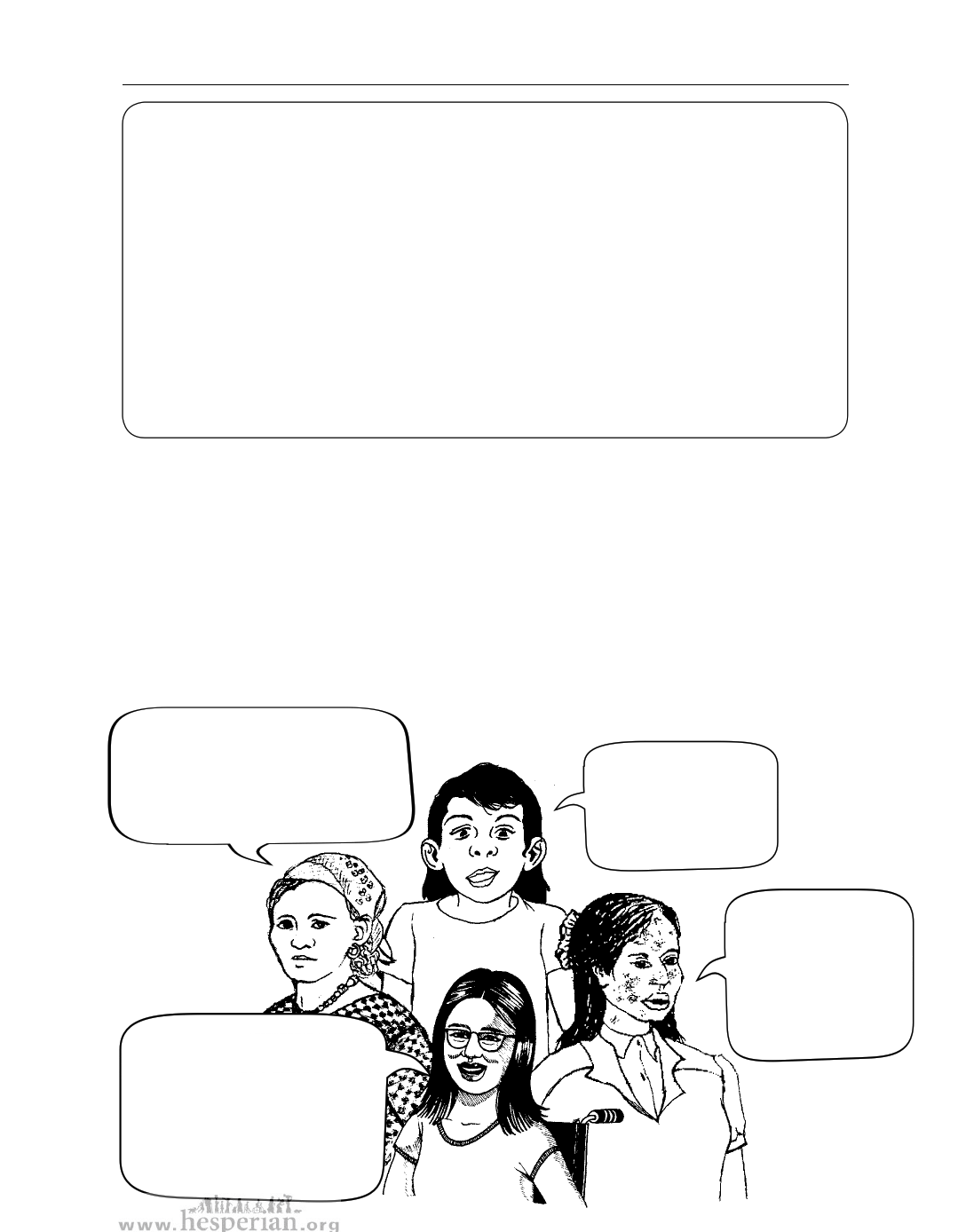
Working for change 19
Educating people to get access
Dorothy, a wheelchair user in Bangalore, a state capital in India, found that
the building which housed the chief minister’s offices had no ramps. Also,
the entrance to the building was too narrow for her to enter. She spoke about
this to the guards and insisted they help her keep her appointment.
Afterwards, Dorothy sent hundreds of emails to tell people what had
happened. This increased the pressure on the government to make changes.
At another time, Dorothy attended a cricket match, where the police asked
her, “Why do you want to come here and watch the cricket match live? You
might as well sit at home and watch the match on TV comfortably.” She
replied that, just like others, she too wanted to see the match live.
What families can do
The way women with disabilities are treated by their families, friends, and other
people who assist them makes a big difference. Many times a girl with a disability is
seen as stupid, dependent, unable to help herself and others, and therefore does not
deserve any resources. Sometimes families also see her as a shameful burden to be
hidden away, and they deny her the right to be heard or to make her own decisions.
If this happens in a family or community, the problem is not with a girl or woman
with disability, but with the people around her.
Even though women work longer
hours than men, we are always seen
as liabilities. No one will give time,
expenses, or effort to meet the needs
of girls with disabilities.
No one ever lets me
hold a baby. Because I
have a disability, they
think the baby won’t
be safe.
My family has too much
expectation of me. They are
not satisfied unless I do very
well in my studies. They say,
“God has given Mai something
special to compensate for
taking away a good thing from
her.”
When someone comes,
first thing my family
does is to ask me to
go inside. Even my
sister is ashamed to
introduce me to her
friends.
A Health Handbook for Women with Disabilities 2007